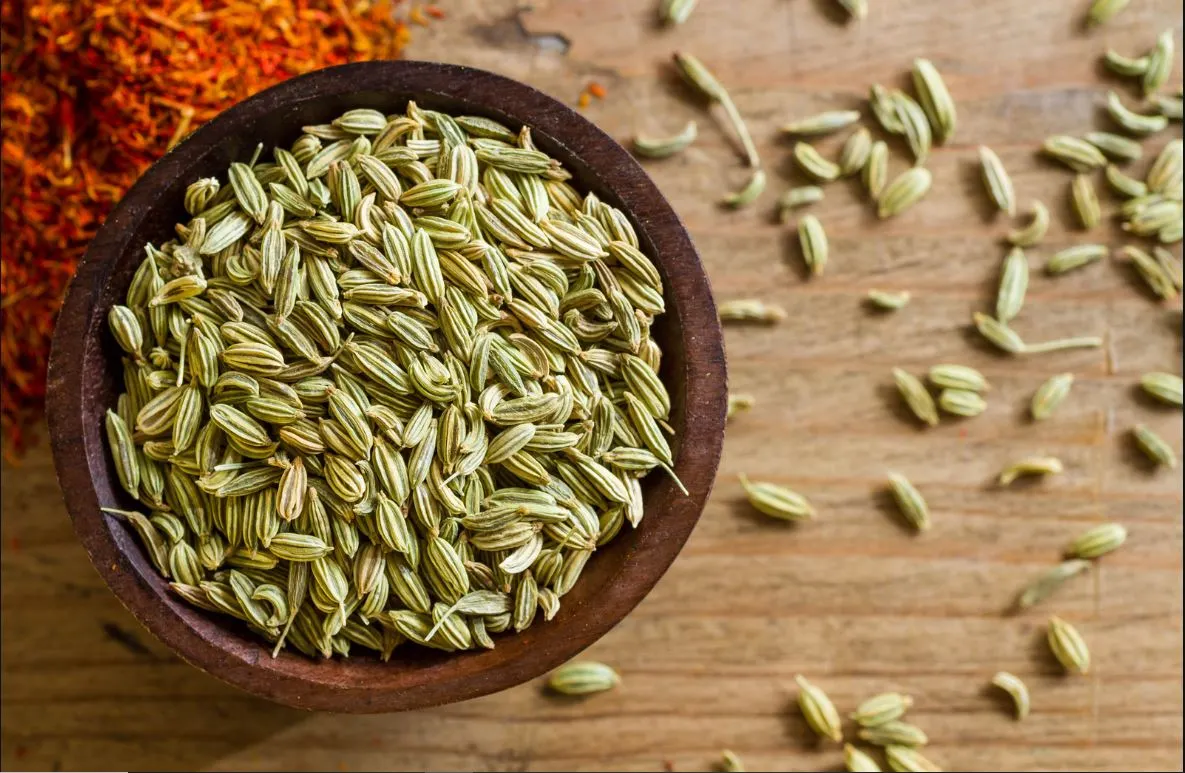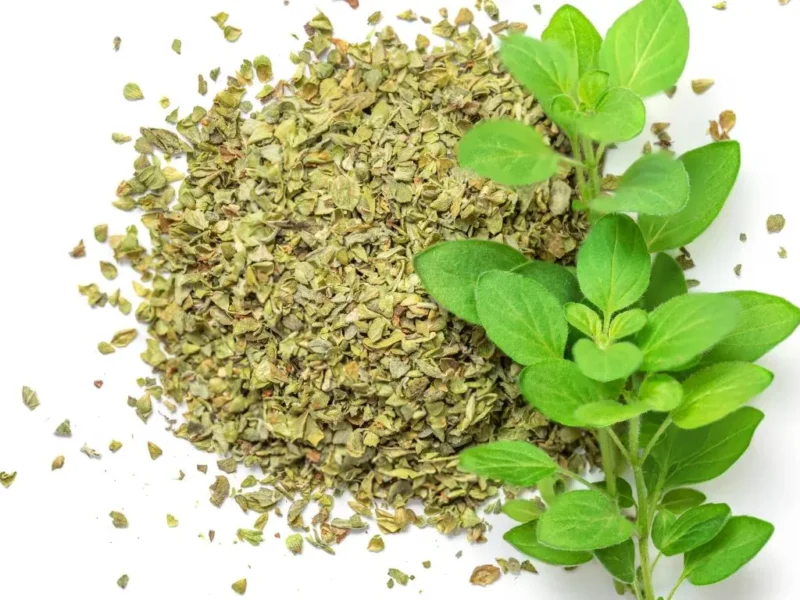Fennel seeds have been a staple in kitchens and medicine cabinets for centuries, praised for their digestive benefits and unique licorice-like flavor. But as with any natural remedy, questions about potential side effects arise. One such question that has gained attention is: can fennel seeds cause anxiety?
In this blog post, we’ll delve into the relationship between fennel seeds and anxiety, exploring both the potential benefits and risks associated with this aromatic spice.
Fennel Seeds
Before we address the question “Can fennel seeds cause anxiety?”, let’s take a closer look at what fennel seeds are and how they’ve been used traditionally.
Fennel seeds come from the fennel plant (Foeniculum vulgare), a flowering herb in the carrot family. These small, greenish-brown seeds have been used for culinary and medicinal purposes for thousands of years. They’re known for their:
- Digestive benefits
- Potential anti-inflammatory properties
- Use in traditional medicine for various ailments
Can Fennel Seeds Cause Anxiety?
Now, let’s tackle the main question: can fennel seeds cause anxiety? The answer isn’t straightforward, as research on this specific topic is limited.
However, we can examine the known effects of fennel seeds on the body and how they might relate to anxiety.
Potential Anxiety-Reducing Effects of Fennel Seeds
Interestingly, some studies suggest that fennel seeds might have anxiety-reducing properties:
- A study published in the Journal of Ethnopharmacology found that fennel extract had an anxiolytic (anti-anxiety) effect in animal models.
- Fennel seeds contain compounds like anethole, which has been associated with mood-enhancing effects in some research.
These findings suggest that for some people, fennel seeds might help alleviate anxiety rather than cause it.
Possible Mechanisms by Which Fennel Seeds Could Affect Anxiety
While the question “Can fennel seeds cause anxiety?” remains open, there are a few ways fennel seeds could potentially influence anxiety levels:
- Hormonal effects: Fennel seeds contain phytoestrogens, which can mimic estrogen in the body. Hormonal fluctuations can sometimes affect mood and anxiety levels.
- Digestive impact: Fennel seeds are known to affect digestion, and there’s a well-established connection between gut health and mental health. Changes in digestion could potentially influence anxiety levels for some individuals.
- Individual sensitivity: As with any food or supplement, some people may be more sensitive to the effects of fennel seeds than others.
Factors to Consider When Asking “Can Fennel Seeds Cause Anxiety?”
While there’s no definitive evidence that fennel seeds directly cause anxiety, there are a few factors to keep in mind:
Dosage and Consumption Method
The amount of fennel seeds consumed and how they’re prepared can influence their effects on the body. For example:
- Consuming large amounts of fennel seeds or fennel seed extract might have different effects than using small amounts in cooking.
- Drinking fennel tea might have a different impact than chewing whole seeds.
Individual Differences
Everyone’s body reacts differently to foods and herbs. While some people might find fennel seeds calming, others could potentially experience increased anxiety or other side effects.
Interaction with Medications
If you’re taking medications for anxiety or other conditions, it’s important to consider potential interactions. Fennel seeds can interact with certain medications, including some used to treat anxiety disorders.
Other Potential Side Effects of Fennel Seeds
While we’re exploring the question “Can fennel seeds cause anxiety?”, it’s worth noting other potential side effects:
- Allergic reactions in some individuals
- Increased sun sensitivity
- Potential hormonal effects due to phytoestrogen content
These side effects are generally rare but worth being aware of.
Related Guide: Is Licorice Good for Stomach Acid? Exploring Natural Remedies for Digestive Health (2025)
The Importance of Moderation and Professional Advice
As with any dietary change or supplement, moderation is key. If you’re considering using fennel seeds for their potential health benefits, it’s always best to start with small amounts and observe how your body reacts.
Moreover, if you’re dealing with anxiety or any other health condition, it’s crucial to consult with a healthcare professional before making significant changes to your diet or starting any new supplements.
FAQs
1. Does fennel cause anxiety?
Fennel tea has been used for generations in traditional medicine to help reduce anxiety and tension. Fennel has also been shown in a few studies to have anti-stress and anti-anxiety properties. The next time you’re feeling anxious or tense, try drinking a fresh cup of fennel tea and see if it helps.
2. Is fennel good for nerves?
In a mouse model, methanolic extract of fennel (Foeniculum vulgare) accelerates functional healing after a sciatic nerve compression injury.
3. Can fennel seeds cause insomnia?
You could feel more sleepy after consuming fennel since it helps relax your muscles, especially the ones in your digestive system. Fennel was used in traditional medicine to cure sleeplessness.
4. What happens to your body when you eat fennel seeds every day?
Due to its high fiber content, which has been demonstrated to lower some heart disease risk factors including high cholesterol, eating fennel and its seeds may have a variety of positive effects on heart health. A serving of raw fennel bulb, weighing one cup (87 grams), contains three grams of fiber, or 11% of the Daily Reference Value (DRV).
Conclusion
So, can fennel seeds cause anxiety? Based on current research, there’s no strong evidence to suggest that fennel seeds directly cause anxiety in most people. Some studies hint at potential anxiety-reducing effects. However, individual reactions can vary, and more research is needed to fully understand the relationship between fennel seeds and anxiety.
If you enjoy fennel seeds and find them beneficial, there’s likely no reason to avoid them out of fear of anxiety. However, if you notice any changes in your anxiety levels or overall health after consuming fennel seeds, it’s wise to consult with a healthcare provider.
Remember, anxiety is a complex condition influenced by many factors. While diet can play a role in mental health, it’s just one piece of the puzzle. A holistic approach to mental wellness, including a balanced diet, regular exercise, stress management techniques, and professional support when needed, is often the most effective way to manage anxiety.
As we continue to explore the intricate connections between what we eat and how we feel, questions like “Can fennel seeds cause anxiety?” remind us of the importance of listening to our bodies and seeking evidence-based information. Stay curious, stay informed, and always prioritize your overall well-being.



